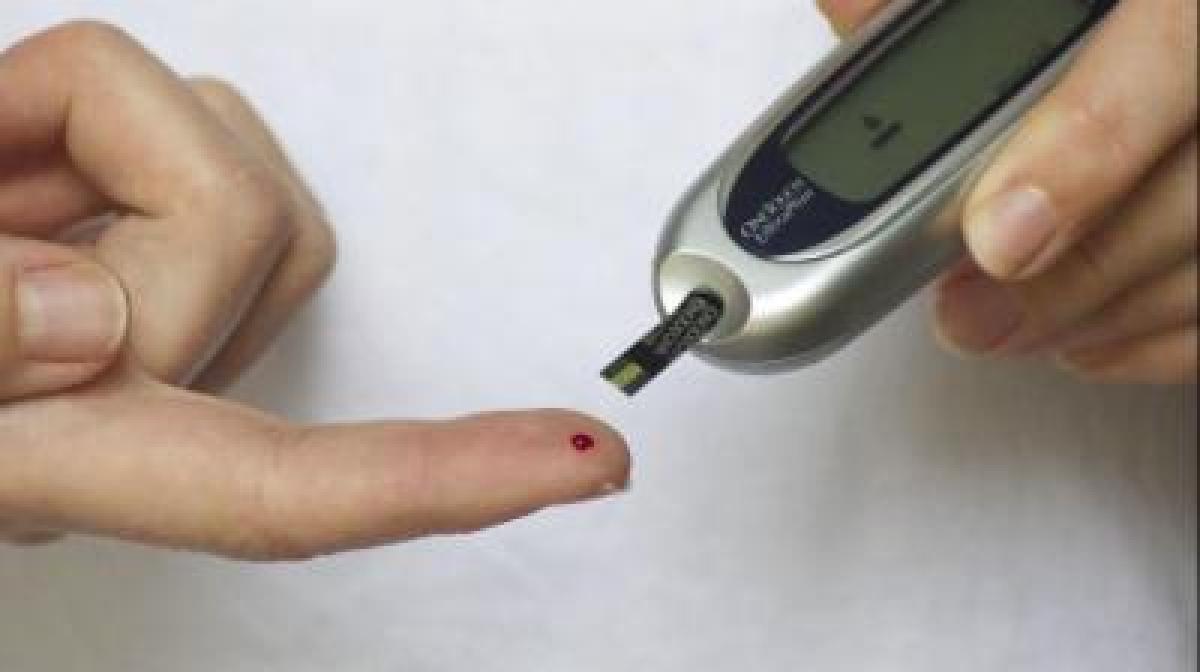Live
- CAG points out increasing debts during 2022-23
- Youth Commits Suicide in Srikalahasti
- MeT department advises TN fishermen to avoid deep sea fishing
- Scientists decode brain activity that can help treat anxiety and depression
- Madarihat loss sees BJP’s tally in Bengal Assembly down to 66
- Sambhal mosque survey: Mob pelts stones at cops, several arrested
- US chipmaker AMD poised to step up investment in India
- Market Outlook: Q2 GDP, FIIs data and global cues key triggers for next week
- Internationalisation of UPI progressing rapidly: RBI
- NHRC Team Visits Sangareddy Jail to Investigate Lagacharla Incident
Just In

Three-quarters of women who develop diabetes during pregnancy are not screened for diabetes again within one year after giving birth, according to a new study.
Three-quarters of women who develop diabetes during pregnancy are not screened for diabetes again within one year after giving birth, according to a new study.
This is “dismaying, but not surprising,” said lead author Dr. Emma Morton-Eggleston of Harvard Pilgrim Health Care Institute in Boston. In many cases, so-called gestational diabetes will resolve after pregnancy. In some cases, however, women will develop type 2 diabetes. Organizations like the American College of Obstetricians and Gynecologists, therefore, recommend that women with gestational diabetes have their blood sugar levels checked six to 12 weeks after giving birth.
“Women with a history of gestational diabetes have a much higher risk of developing diabetes, up to seven times higher over your lifetime,” Morton-Eggleston told Reuters Health by phone. “The highest increases in risk are within 10 years of having gestational diabetes.”
The researchers used commercial insurance claims to study more than 440,000 women who gave birth at least once between 2000 and 2012, including 32,253 who had gestational diabetes. Within one year after giving birth, only 25 percent had received blood sugar screening, according to the insurance database.
Recommended screening at six to 12 week postpartum increased from two percent of women in 2001 to seven percent in 2011.
Asian women were more likely than white women to receive any kind of blood sugar screening. In addition, oral glucose tolerance tests were performed in 36 percent of women in Western states within 12 weeks of giving birth, compared to 19 percent of women in the Northeast and 18 percent in the South.
Women who visited an endocrinologist or a nutritionist-diabetes educator after giving birth were more likely than others to be screened for diabetes, as reported in Obstetrics and Gynecology.
Women who have gestational diabetes and are not screened postpartum may continue to have elevated blood sugar or overt diabetes, then become pregnant again, and entering a pregnancy with overt diabetes poses greater risks to the fetus and the pregnancy, Morton-Eggleston said.
In addition to screening after giving birth, ideally at the six to 12-week postpartum follow-up appointment, women with gestational diabetes should have ongoing blood sugar screening every one to three years, she said.
“For lots of women, it’s hard to come in again once you have children, it’s hard to keep up with routine medical care,” Morton-Eggleston said. “And you’ve been taken care of by an obstetrics team, who are not necessarily in communication with your primary care team,” she added, and it may not be clear to doctor who should be doing the screening and when.
“If you catch diabetes or abnormal blood sugar early, there are ways one can try to prevent overt diabetes,” she said. “Catching it early is very important, as dietary change and exercise have profound effects.”

© 2024 Hyderabad Media House Limited/The Hans India. All rights reserved. Powered by hocalwire.com







